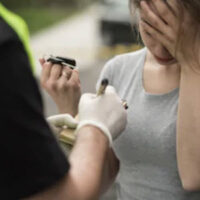Tennessee Field Sobriety Tests

When a law enforcement officer suspects that a driver is operating a vehicle under the influence of alcohol or drugs, they will request that the driver perform a field sobriety test. Most police use a standardized set of field sobriety tests to try and determine whether there is probable cause to arrest a person for the suspicion of driving under the influence. While a driver is not legally obligated to perform field sobriety tests, if you choose to do so it is important to know what is expected and what police look for in these tests.
At Fort, Holloway, & Rogers our criminal defense attorneys have defended many clients accused of driving under the influence after an incredibly subjective field sobriety test. To learn more about your legal options, call or contact our office today.
Standardized Field Sobriety Tests
There are three standardized field sobriety tests that law enforcement typically utilizes when asking a driver to perform these tests: the horizontal gaze nystagmus test, the one leg stand, and the walk and turn test. The horizontal gaze nystagmus test looks for the involuntary jerking of the eye when rotated at high peripheral angles. An officer will ask the driver to watch an item like a pen as they move it around and will check to see how quickly the eye starts shaking.
The walk and turn test asks the driver to walk, heel to toe, nine steps in one direction before turning on one foot and returning in a straight line with the heel to toe walk. The officer is looking for a lack of balance, not walking heel to toe, using arms for balance, and starting before the end of the directions. Finally, the one leg stand asks the driver to lift one leg and begin counting until the officer says to stop. The police look for swaying, missing numbers, and putting the foot down.
How a Lawyer Can Help
Field sobriety tests are incredibly subjective, and in most cases when a police officer asks a driver to complete a field sobriety test they have already decided in their mind that the driver is impaired. Everything from the road conditions, weather, and footwear can affect the outcome of a field sobriety test. Medical conditions or side effects of medication can also cause a person to fail a field sobriety test even if they are sober.
A driver accused of DUI after a failed field sobriety test has many legal defenses available to them, and an experienced criminal defense attorney is the best person to make those arguments in court. An attorney can review the traffic stop, the methods of testing, evidence collection, and more to find all the weak points in the state’s case. To learn more about how a lawyer can help after a DUI arrest, call or contact our office today.
Talk to Our Team
Have you or a loved one been arrested for driving under the influence after failing a field sobriety test? If so, you need the experienced Franklin DUI defense attorneys at Fort, Holloway, & Rogers to advocate for you in court. Call the office or contact us today to schedule a confidential consultation of your case.
